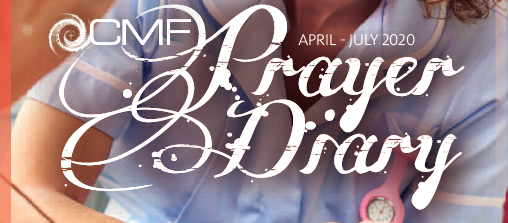Contents
Download the PDF copy of the CMF Prayer Diary here
To subscribe to the CMF Prayer Diary, email prayer@cmf.org.uk or subscribe to our PrayerMate feed
Author details
-
Matt works for WebFX in London and is currently working on the CMF web project. This will be replaced with the actual author in due course.
View all posts


